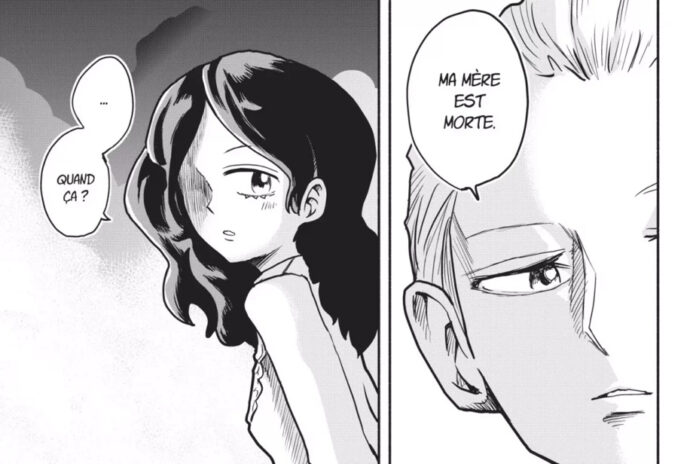Many Western literary classics have been dipped in manga sauce, from Proust to Hugo via Goethe, Cervantes or Kafka. After The Plague, it is now the turn of The Stranger by Albert Camus to benefit from a new Japanese-style adaptation. Notable fact: the project, led by mangaka Ryota Kurumado, was supported and supervised by the writer’s family, resulting in a convincing result, just published in Quebec.
“Today Mom is dead,” and now, The Stranger is reborn. This title, one of the most widely read in French-language literature and frequently appearing on the curriculum of French schools, depicts the intriguing and icy Meursault, killing in cold blood an Algerian man who has come to avenge his sister. During his trial, the protagonist unfolds the thread of events, occurring in the context of Algeria still under French domination. The young murderer demonstrates an inexplicable detachment with regard to his gesture, his fate, and the reasons which led him to fire several bullets at the corpse. “Nothing matters. This life is absurd! “, he says shortly before his execution.
Adapting a literary classic into a manga is a delicate process, the authors being forced to transpose it into a format far removed from that of the novel, while connecting the cultural and narrative codes specific to these two worlds. While some outcomes are sometimes unfortunate, this version of The Stranger was able to play at least two assets that ensured its success. On the one hand, the young mangaka Ryota Kurumado, who had already adapted The Plague, once again showed how much he admired and respected Camus’ work, while putting his creative stamp on it. On the other hand, the author’s descendants, in particular his daughter Catherine and his granddaughter Élisabeth Maisondieu-Camus, supported and supervised the creation of this adaptation, in order to ensure that the flame of the original novel would burn there. new.
“We gave the mangaka a lot of freedom in this project, and I love the result it gave,” Ms. Maisondieu-Camus told La Presse by videoconference. Originally, the writer’s granddaughter had been informed of the publication of The Plague in Japan by Ryota Kurumado and, seduced by this adaptation, had turned to Michel Lafon editions to publish a translation. French. In the case of The Stranger, a collaboration has been established between the mangaka and the Camus family to work together.
“He proposed to add a few little things, for example the bee that comes on the coffin of Meursault’s mother, we checked if it corresponded to the scene, says Élisabeth Maisondieu-Camus. An adaptation is a new author, so unless there is a total misinterpretation, we have no right to be too intrusive. You have to be open, and that’s what we did. »
Unlike the manga version of The Plague, which was published in several volumes, the entirety of The Stranger is contained in a single volume of some 300 pages. Respecting the codes of the genre without lapsing into exaggeration, maintaining a formal tone well managed with the lightness of the manga style, the drawings take the lion’s share, punctuated by minimalist dialogues, but judiciously chosen, taking up the key lines of the novel – including the famous incipit “Today, mom is dead” which, to surprise the reader, does not cap this graphic adaptation.
The sets having been subjected to an intensive mode of sobriety, the accent was clearly placed on the faces and close-ups, taking advantage of the deep expression allowed by the oversized pupils of the manga characters. The granddaughter of Albert Camus has also given its approval to the features of Meursault from the first proposal of the mangaka, believing that they corresponded perfectly to the character of the protagonist. “Mr. Kurumado’s drawing is very nice, and he manages to bring out the personality of the characters in Camus’s novels, which are generally complex. He has an understanding of the philosophy of the work,” she said.
Is youth in the crosshairs of the craftsmen of this adaptation? Not so much, since Camus is already widely taught in French-speaking schools. It is rather to a readership reluctant, a priori, to turn to classic literary works that we wish to give access to the thought of the writer. Asked whether her grandfather, who died in 1960, would have appreciated this approach, Élisabeth Maisondieu-Camus hesitates to get wet, especially since she did not know him during his lifetime. “If his blood runs through my veins, I would say that he would have been happy that a young person from the world of manga and from this generation [Ryota Kurumado is in his early thirties] took an interest in his work and adapts without misinterpreting. I think he would have been open to it,” supposes one who would see many Nobel Prize in Literature plays get the same manga treatment; although nothing has yet been officially launched in this direction.















